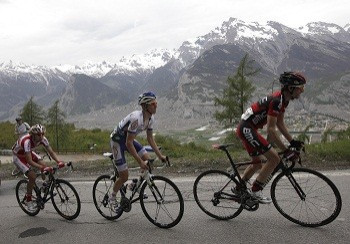UK Roads Unsafe For Cycling, Finds Survey

Most people believe that the UK roads are unsafe for cycling, according to a survey. Researchers from the Brake and the Bolt Burdon Kemp who conducted a survey of 1,550 commuters, found that more than 60 per cent of the people believe most of the roads are not safe for cycling.
The study claims that more than 40 per cent of commuters would be persuaded to travel by cycle only if the roads were less dangerous.
Only 15 per cent of those surveyed said they had widespread 20mph limits in their area. Of those who do not have widespread 20mph limits, 73 per cent would support having them and 83 per cent would back measures like cycle paths being introduced in their community, according to Press Association.
The survey also reveals that 35 per cent of commuters would switch to cycling only if the roads were much safer.
According to the researchers, cycling is the healthiest, cheap, green, socially responsible way to travel. But sadly, as cycling levels have risen, so have cyclist deaths, most notably in the capital, and the UK lags behind other EU countries in protecting cyclists. Experts opine that it is vital we make our roads safer for cyclists, to protect those already cycling, and enable more people to do so.
In 2010, more than 110 cyclists were killed on the UK roads, a seven per cent rise compared to 2009. The number of people who were seriously injured rose by 2 per cent.
Researchers believe that the government has to encourage people to cycle; they say that cycling will improve health and reduce CO2. But, unfortunately, the government is paying less attention to cyclist safety.
"It's positive the government is working to encourage cycling to improve health and reduce pollution, but it must also ensure roads are safe for cyclists. Widespread 20mph limits and cycle paths where people live and work would encourage more people to cycle, without their lives being threatened by fast traffic," Press Association quoted Julie Townsend, deputy chief executive at the Brake, as saying.
© Copyright IBTimes 2025. All rights reserved.





















